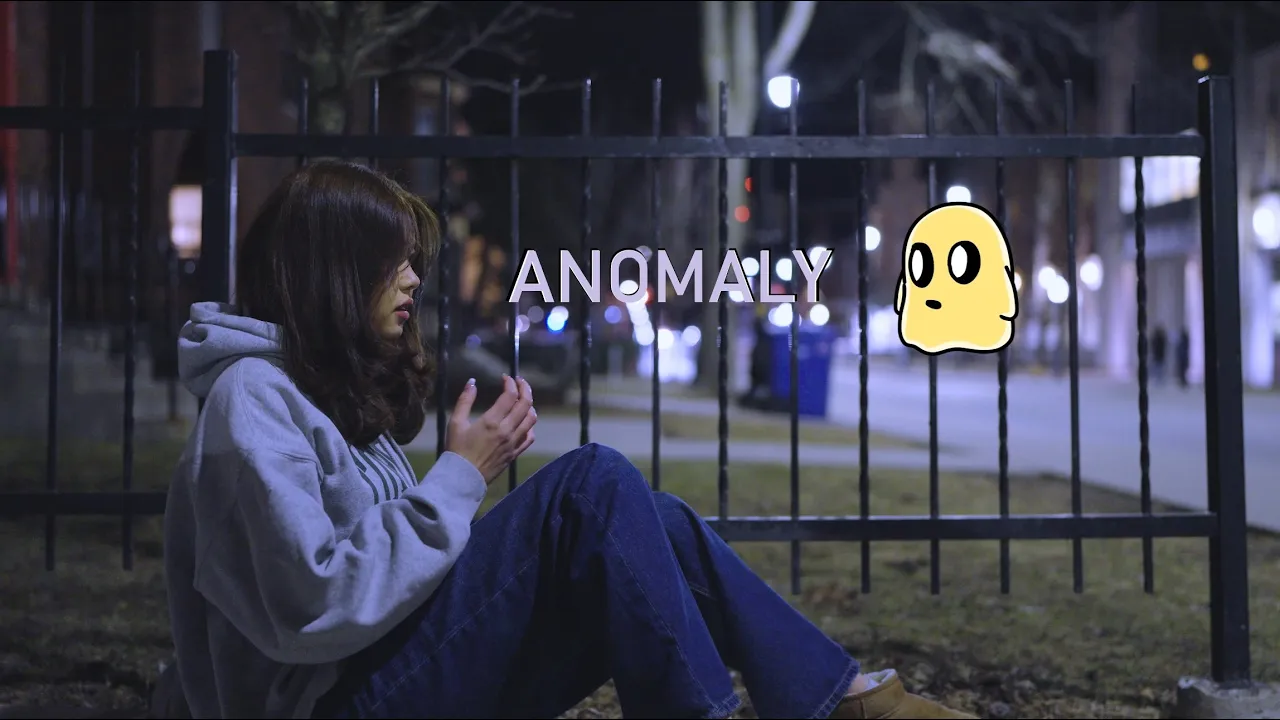5 things I learned from my first short film
cinema?
Setting the stage
During the final year of my computer science degree, I finally got to pick an elective in a discipline I care about: film.
Ever since I started at Queen’s, I wanted to use my spare time learning about cinema. Those classes are quite sought-after, so I didn’t get a chance at taking any film classes until my final year. Typically, I’d wish for more time to take more of those classes, but at this point I’m just grateful for the opportunity.
I got into three film classes: two of them being introduction to film theory and history, and one practical course on media production fundamentals. In the practical class I learned all about the shenanigans that go on behind the camera and between scenes. But where I learned the most was when we were handed a camera and a prompt. I was paired with an incredibly talented team of students from different disciplines to put together our first short film.
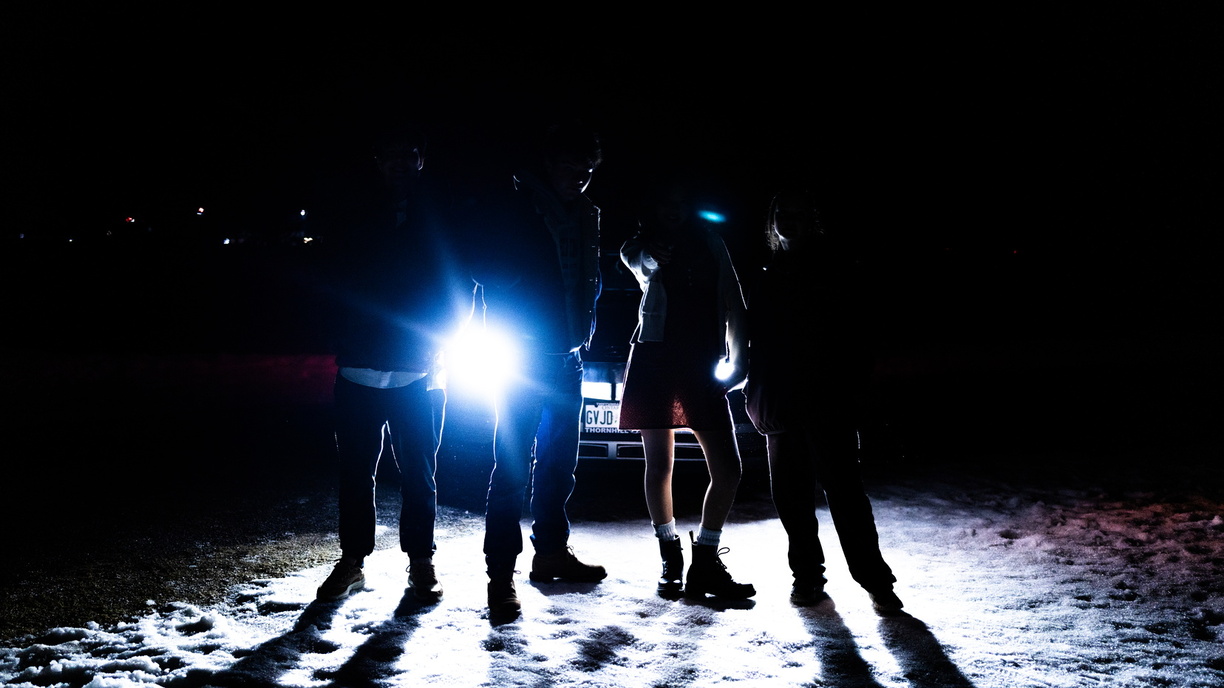
I should mention…
As much as I love film, I am not an expert. I have five years of photography under my belt, so I understand basic camera fundamentals. Before this film, my main knowledge base came from an ungodly amount of time spent watching movies and TV shows. I learned a crazy amount from this project, and I’m super excited to keep filming.
Another thing—there wasn’t really a budget. We lucked out on gear because I hoard a bunch of camera equipment, so we used my photography/videography kit: a gimbal had been gathering dust, my Sony α7R V, four lenses, a tripod, and lavalier microphones (can’t be too careful, right?).
Anyway, here are some of the most important things I took away from working on this project.
1. Care about future you
We wanted to give our animator as much time as possible, so we tried to finish shooting as quickly as we could. This haste caused us to care a little bit less about simple things, like saying the scene and take number out loud. I don’t blame us, honestly. At some points, we were sick and tired from filming from morning until nightfall, and none of us felt like being sticklers, because that wasn’t necessarily the vibe on set. As much as I loved the vibes, matching unnamed audio clips to unnamed video clips was hell. Because we had several really solid takes, everything looked and sounded similar enough for 3 a.m. me to absolutely lose my mind while editing.
Learn from my mistake. Do it. Be that person; reset the scene if you need to.
One of my best friends has this nice philosophy that he applies to life when he’s stuck with a task that he would rather not do. He says something along the lines of “Do something today that future you will thank you for”. In this case, future me wanted to get violent with past me while editing. The sheer disappointment I felt when sifting through all of these mismatched files was immeasurable. What I can take away from this mistake, is: do your future self a favour, and embrace a little discomfort now to save yourself a world of pain later.
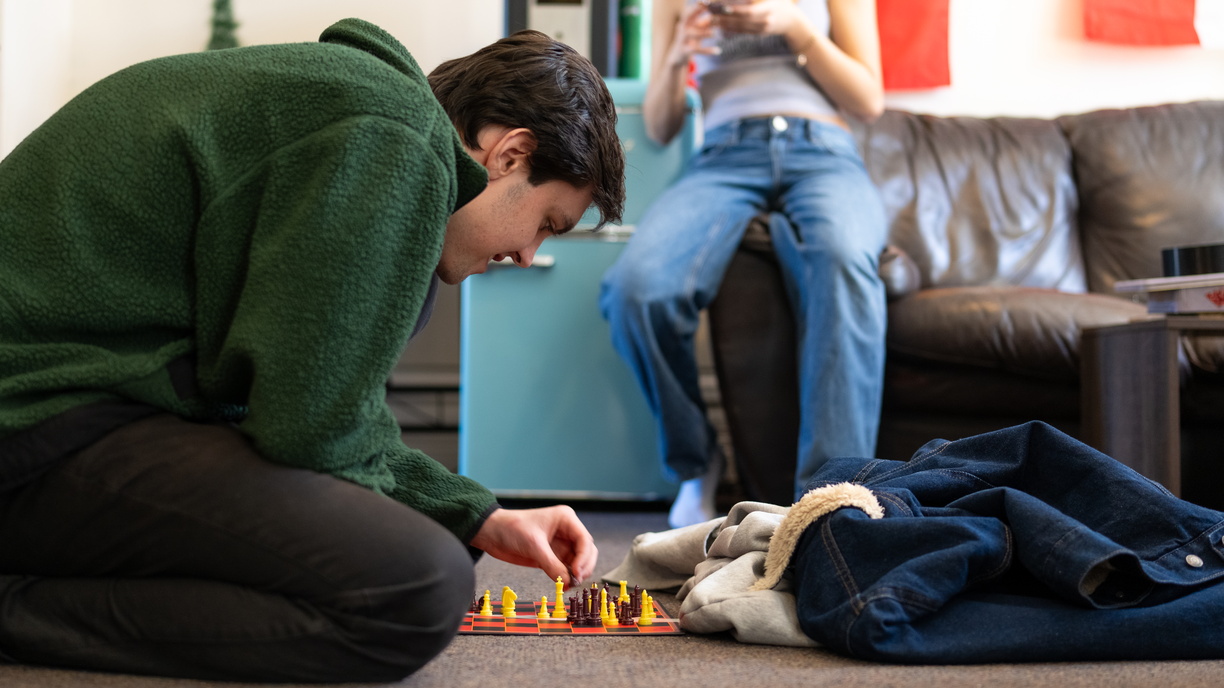
2. Listen to notes
Listening helps, and real understanding goes a long way- whatever that means. But seriously though, you need to listen to the people around you. There were times when I got lost in the sauce, trying to perfectly satisfy my personal vision, but that wasn’t what the film needed. Of course I wasn’t a complete goofball: when someone said, “Hey, that method doesn’t look right,” or “Hey, we’re a bit tight on time—let’s try it this way”, I didn’t shrug them off. I implemented their notes, and in the long run it really helped us out. At the time, I had a hard time coming to terms with their words, but sometimes you need to understand that your team members aren’t trying to sabotage the film or destroy your vision. They want what’s best for your vision and the film as a whole. Trusting the people around you is wildly important, so getting out of your own way and hearing out what others have to say benefits everyone.
3. Don’t be afraid to try new things
Here’s where I can thank my teammates for their endless patience. From day one, I asked if I could oversee the film’s cinematography, and everyone was pretty cool with it. I got to set up most shots, and at the same time, screw around with camera placement and movements. To be honest, I had a boatload of fun trying different ways to get my envisioned shot. One of the biggest questions in filmmaking is “Where do you put the camera?”. I had a fun shot list in my mind, and some a colourful storyboard. My team let me try it all out, which was cool, since I don’t really get the opportunity to film a bunch of actors very often. There were some panning shots and camera angles that made very little sense to my team, but their confidence in me deserved an award, because after a bunch of odd attempts, we got some shots that still have me geeking over to this day.
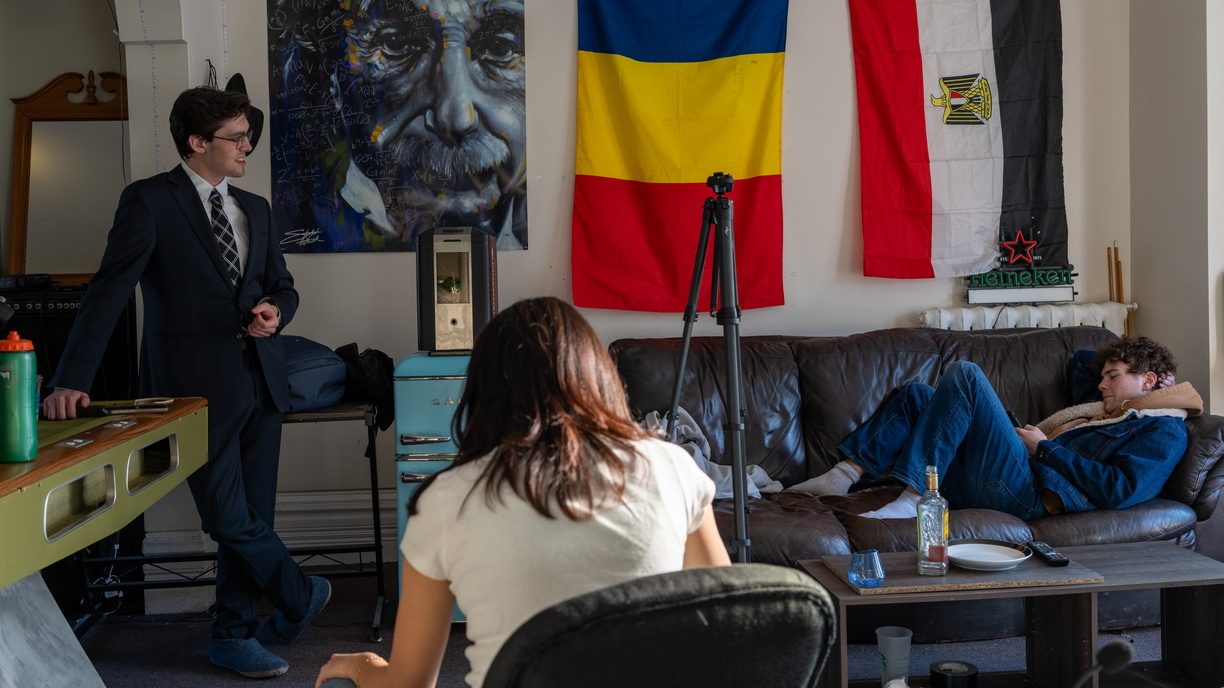
4. Try to not get disheartened when things don’t work at first
Shit happens. On the first few days of filming, I had plans and backup plans. At times, I had backup plans for the backup plans. Who am I, Batman? No. Seriously, we faced several catastrophic problems that I couldn’t account for. Instead of panicking, we regrouped and constructed a new plan with what we had. I was even met with times where I found a mistake and felt a semblance of hopelessness. That was wildly dramatic. I had time and angels of group members. Whenever a mistake surfaced, we flagged it immediately and solved it together. Though the days of filming were wildly laborious, each person was a trooper, and we got that shit done. These moments of friction aren’t meant to bring you down; they’re opportunities to learn. Solving a tough problem can be incredibly rewarding—you might find your brain working in ways you never expected.

5. Enjoy the company
This should go without saying, but working with people you like helps. For a majority of the semester I met with the same classmates for our group projects, so naturally I asked each them if they were cool with working together on the final. Everyone was down, and that rapport paid off during and after production. Meetings felt more like hangouts; asking for retakes felt comfortable; and my team was patient when I screwed up a shot for the hundredth time. Thanks guys :)
During moments of frustration and potential points of disagreement, everyone was super chill. We worked so many problems out so efficiently that it felt like a conflict resolution speed run. There were even times where I couldn’t see the vision, but since I was with such awesome and talented people, I trusted the process. Over the semester and especially during the project, I got to learn so much from these people, helping me get an understanding of different perspectives and opinions. I could only imagine the trainwreck that could have incurred if we didn’t get comfy- I feel like nothing would have been completed.
So, get to know the folks around you! Life gets a bit easier when you reach that comfort level.
I met some really cool people. Cameron is incredibly insightful and a wonderful conversationalist. I could talk to him for hours. Greg is wildly funny and phenomenally talented at animation. We might have to hide him from Studio MAPPA. Randi is a gifted aspiring filmmaker with inspiringly novel ideas. Teiah is an exceedingly talented writer who always has the most off-the-wall story on hand (they are all equally concerning and entertaining).
After the film was finished, I went to the mini film festival run by our school with a teammate. We didn’t win anything, but we knew we created something we were proud of. After the festival, we went out to get some celebratory Wendy’s, where we got to shoot the shit over some chicken sandwiches. Honestly, coming out of our film with a handful of new friends while knowing we did our best is all that I could ask for. Again, thank you team Anomaly :)
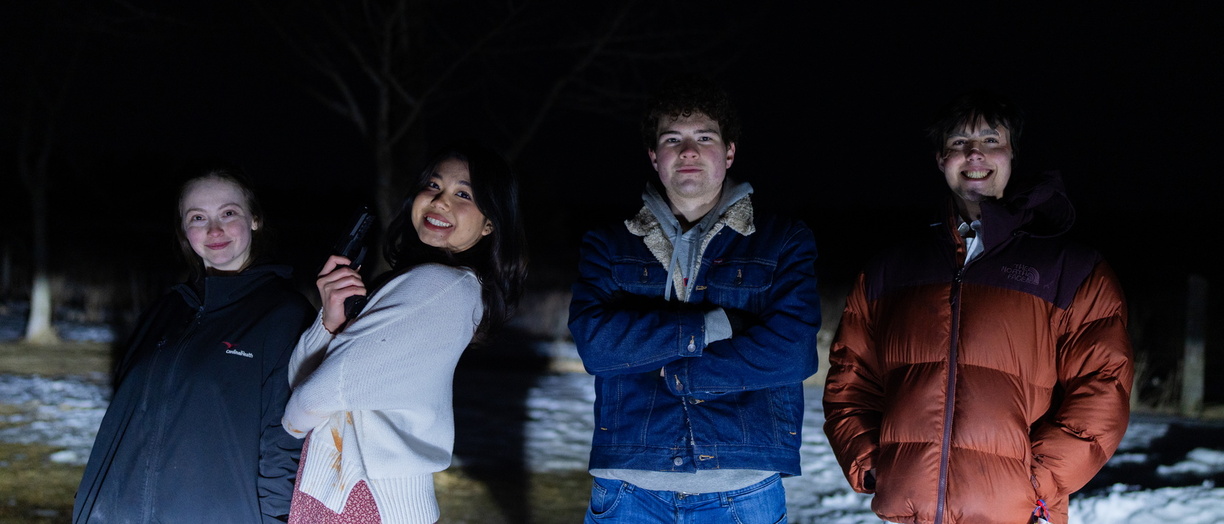
Our film, Anomaly:
